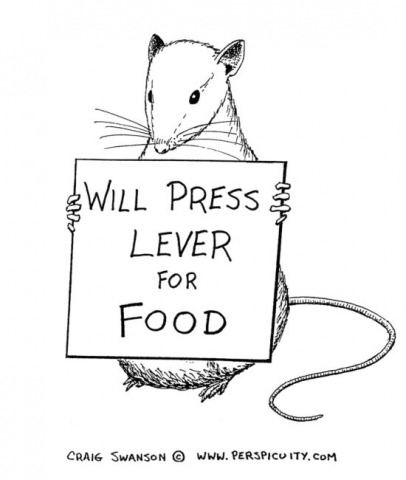
I have been reading some of the work of the late radical behaviorist B.F. Skinner. Skinner, who denied free will, seems to have drawn some of the implications of his position – but it seems to me that he stopped short. Read the following remarks, from his autobiography and to the interviewer Alfie Kohn, and see whether you agree.
“I am often asked, ‘Do you think of yourself as you think of the organisms you study?’ The answer is yes. So far as I know, my behavior at any given moment has been nothing more than the product of my genetic endowment, my personal history, and the current setting.”
“During the ‘Dark Year’ in Scranton, I began to write notes about intellectual suicide .... I did not consider actual suicide; behaviorism offered me another way out: It was not I but my history that had failed.”
“I have continued to seek relief from the effects of punitive consequences in the same way. I have learned to accept my mistakes by referring them to a personal history which was not of my making and could not be changed.”
“When I finished Beyond Freedom and Dignity, I had a very strange feeling that I hadn’t even written the book. Now I don’t mean this in the sense in which people have claimed that alter egos have written books for them and so on, but this just naturally came out of my behavior and not because of anything called a ‘me’ or an ‘I’ inside.”
“If I am right about human behavior, I have written the autobiography of a nonperson.”
“I can now take all of my faults and all of my achievements and turn them over to my history, and the point I make is that when I die personally, it won’t make a bit of difference. Because there’s nothing here, you see, that matters.”
“I never think much about dying. I have no fear of death .... The only thing I fear is not finishing my work. There are things I still want to say.”
Having once thought much the same way myself when I was a young man, I am in no position to be snarky. But isn’t it self-defeating to say “I don’t have an I”? If the speaker doesn’t have an “I,” then who is denying it? If nobody is denying it, then has it really been denied? If the self who seems to deny it is an illusion, then who is suffering the illusion?
And by the way, if this nonperson isn’t worried about his extinction, then why does he worry about the extinction of his work? For since the rest of us are nonpersons too, there will be no one to appreciate or understand it.
Tomorrow: Opinions of Dead Men